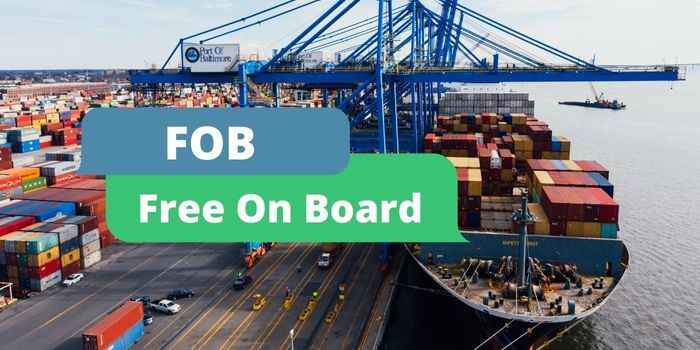As we have told you before, Incoterms are a standardised set of rules and are used in international contracts to define the obligations between the parties.
On other occasions we have talked about, for example, Incoterms 2020; Ex Works or DDP or Incoterms 2022 (wink, wink). Today, we tell you everything you need to know about Group F.
What is Group F?
In group F, the seller’s obligations include taking care of the export clearance, loading the vehicle and a first transport, if necessary.
Group F together with Group E are considered short-range Incoterms.
Here we can find the following Incoterms: FCA (Free Carrier), FAS (Free AlongSide ship) and FOB (Free On Board).
General characteristics of Group F Incoterms
The exporter delivers the goods for transport according to the instructions of the importer, who is responsible for inland transport in the country of origin.
However, the main transport is at the importer’s expense, but it is the exporter who is obliged to take care of customs clearance.
What is FCA?
FCA stands for Free Carrier. In this case, the seller is responsible for loading the vehicle, the export clearance formalities and the hiring and costs of inland transport to the place of delivery.
Delivery can take place at two points:
– Designated place: At the exporter’s production site or warehouse.
– Place other than the warehouse: The exporter contracts and pays for inland transport to the point indicated by the importer but does not unload the goods.
What is the FAS Incoterm?
FAS stands for Free Alongside Ship. This Incoterm can only be used in the case of sea or inland waterway transport.
It is the exporter who bears the cost and risk of loss or damage to the goods upon delivery.
It is recommended for bulk and general cargo but not for containers.
In the case of bulk cargo, the exporter places the goods alongside the ship and it is the importer who negotiates the loading conditions with the shipping line.
On the other hand, if the goods are in containers, the importer usually places the goods at a terminal and not alongside or on board the ship.
What is FOB?
FOB stands for Free On Board. In this case, the exporter delivers the goods on board the vessel that has been previously designated by the importer at the agreed port of shipment.
In the FOB Incoterm, the risk of loss or damage to the goods is transferred to the other party when the goods are already on board the ship and not before, i.e. damage in the process of loading the ship is assumed by the exporter.
Usually used for general cargo or bulk cargo but not for containerised cargo.
As in the case of FAS, we are talking here about this Incoterm being used exclusively for maritime means of transport.
Differences between FOB and FAS
The FOB Incoterm involves higher costs for the exporter than FAS and therefore higher loading risks and therefore higher obligations.
Do you have any doubts? You can fill in the form below and we will answer you as soon as possible.

